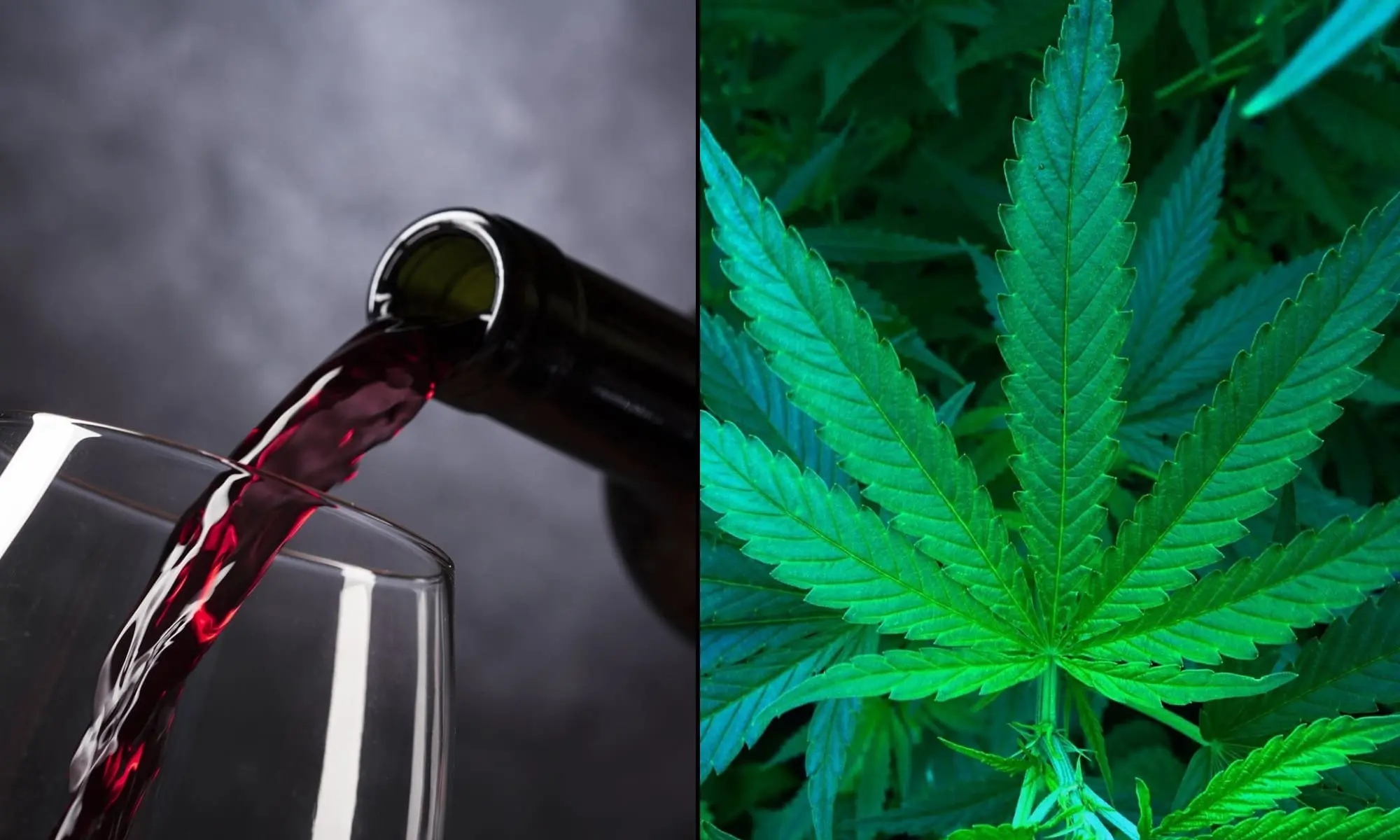Politics
Major Alcohol Industry Group Pushes Congress To Dial Back Proposed Hemp Product Ban

A leading alcohol industry association is calling on Congress to dial back language in a House committee-approved spending bill that would ban most consumable hemp products, instead proposing to maintain the legalization of naturally derived cannabinoids from the crop and only prohibit synthetic items.
Wine & Spirits Wholesalers of America (WSWA), which has backed federally legalizing marijuana and regulating hemp products, said on Friday that it generally supports the effort to ban synthetic cannabinoids such as delta-8 THC that have proliferated since the federal legalization of hemp under the 2018 Farm Bill.
But the hemp provision of the spending bill that cleared the the House Appropriations Subcommittee on Agriculture, Rural Development, Food and Drug Administration, and Related Agencies on Thursday is a bridge too far, the association said.
“WSWA supports the subcommittee’s action to eliminate synthetic, unnatural cannabinoids that are a threat to public health and safety,” WSWA President and CEO Francis Creighton said in a press release. “But prohibition of all cannabinoids is not the answer—it risks sweeping up state regulated and Farm Bill compliant hemp-derived products that have driven a new and dynamic market.”
“Under attempted complete prohibition, bad actors dealing in potentially harmful products will continue to operate and thrive in the shadows, while state regulatory structures that protect public safety will be put in conflict with Federal law,” Creighton said.
WSWA put forward a policy recommendations for lawmakers to consider—namely removing the a provision redefining hemp in a way that’d prohibit products with any quantifiable amount of THC so that the federal government could instead “preserve state authority, protect compliant businesses, and ensure clarity for consumers and regulators.”
The consumable hemp product crackdown isn’t exclusive to the federal government, as multiple states—from California to Florida to Texas—have moved to ban intoxicating cannabinoids in recent months.
“States have stepped up to fill the regulatory vacuum, and Congress must be careful not to undermine their progress,” Creighton said.
Shawn Lederman of the Florida-based Greenlight Distribution said the company has “invested in jobs, infrastructure, and compliance to bring accountability to this space—efforts that would be wiped out overnight, handing the market to unregulated bad actors. We urge Congress to respect our business and citizens. A total ban would be devastating.”
John Giarrante, president of Show Me Beverages in Missouri, said the committee’s “proposal to ban naturally occurring hemp-derived products like Delta-9 will undermine the legitimate and responsible work we’ve done to meet consumer demand while prioritizing public health and safety.”
“We’ve built a compliant, transparent business to bring structure and legitimacy to this fast-growing market,” he said. “This action would not only undo that progress but also have a harmful economic impact—putting jobs at risk and handing the entire category over to unlicensed, unregulated actors with no regard for safety or accountability.”
Members of WSWA also met with lawmakers and staffers in April to advocate for three key policy priorities that the group says is based on “sound principles of alcohol distribution.” They include banning synthetic THC, setting up a federal system for testing and labeling products and establishing state-level power to regulate retail sales.
In an op-ed for Marijuana Moment this month, Creighton echoed that point, reiterating the organization’s position that regulation is superior to prohibition.
This is also consistent with WSWA’s earlier message to House and Senate Agriculture Committee last session, where the association implored congressional leaders to create a regulatory framework for hemp-based intoxicating cannabinoids—rather than impose an outright ban.
Meanwhile, key GOP congressional lawmakers—including one member who supports marijuana legalization—don’t seem especially concerned about provisions in a new spending bill that would put much of the hemp industry in jeopardy by banning most consumable products derived from the plant.
Under the measure that’s being contested, hemp would be redefined under federal statute in a way that would prohibit cannabis products containing any “quantifiable” amount of THC or “any other cannabinoids that have similar effects (or are marketed to have similar effects) on humans or animals” as THC.
The provisions in the bill now heading to a full committee vote would effectively eliminate the most commonly marketed hemp products within the industry, as even non-intoxicating CBD items that are sold across the country typically contain trace amounts of THC. Under current law, those products are allowed if they contain no more than 0.3 percent THC by dry weight.
Hemp industry stakeholders rallied against that proposal, an earlier version of which was also included in the base bill from the subcommittee last year. It’s virtually identical to a provision of the 2024 Farm Bill that was attached by a separate committee last May via an amendment from Rep. Mary Miller (R-IL), which was also not enacted into law.
—
Marijuana Moment is tracking hundreds of cannabis, psychedelics and drug policy bills in state legislatures and Congress this year. Patreon supporters pledging at least $25/month get access to our interactive maps, charts and hearing calendar so they don’t miss any developments.
![]()
Learn more about our marijuana bill tracker and become a supporter on Patreon to get access.
—
Jonathan Miller, general counsel of the U.S. Hemp Roundtable, told congressional lawmakers in April that the market is “begging” for federal regulations around cannabis products.
At the hearing, Rep. James Comer (R-KY) also inquired about FDA inaction around regulations, sarcastically asking if it’d require “a gazillion bureaucrats that work from home” to regulate cannabinoids such as CBD.
A report from Bloomberg Intelligence (BI) last year called cannabis a “significant threat” to the alcohol industry, citing survey data that suggests more people are using cannabis as a substitute for alcoholic beverages such a beer and wine.
Last November, meanwhile, a beer industry trade group put out a statement of guiding principles to address what it called “the proliferation of largely unregulated intoxicating hemp and cannabis products,” warning of risks to consumers and communities resulting from THC consumption.



